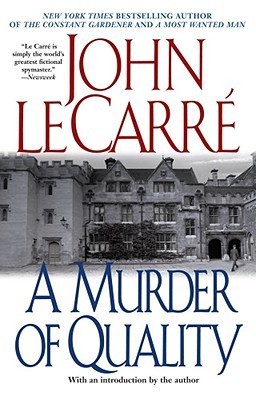What do you think?
Rate this book


146 pages, Paperback
First published January 1, 1962
All men are born free: just not for long.
Only adults had nervous breakdowns in those days, so the methods of survival for boys who refused to join the system were animal cunning, “internal immigration” as the Germans call it, or simply getting the hell out. I practised the first two, then opted for the third and took myself to Switzerland.
Obscurity was his nature, as well as his profession. The byways of espionage are not populated by the brash and colourful adventurers of fiction. A man who, like Smiley, has lived and worked for years among his country's enemies learns only one prayer: that he may never, never be noticed. Assimilation is his highest aim, he learns to love the crowds who pass him in the street without a glance; he clings to them for his anonimity and his safety.
It was from us they learnt the secret of life: that we grow old without growing wise. They realized that nothing happened when we grew up: no blinding light on the road to Damascus, no sudden feeling of maturity.
That’s the trouble today. ... Nobody seems to understand you can’t build society overnight. It takes centuries to make a gentleman.
I hated English boarding schools. I found them monstrous and still do.~ John le Carré, in the afterword


 http://www.bbc.co.uk/programmes/b011cfjw
http://www.bbc.co.uk/programmes/b011cfjw